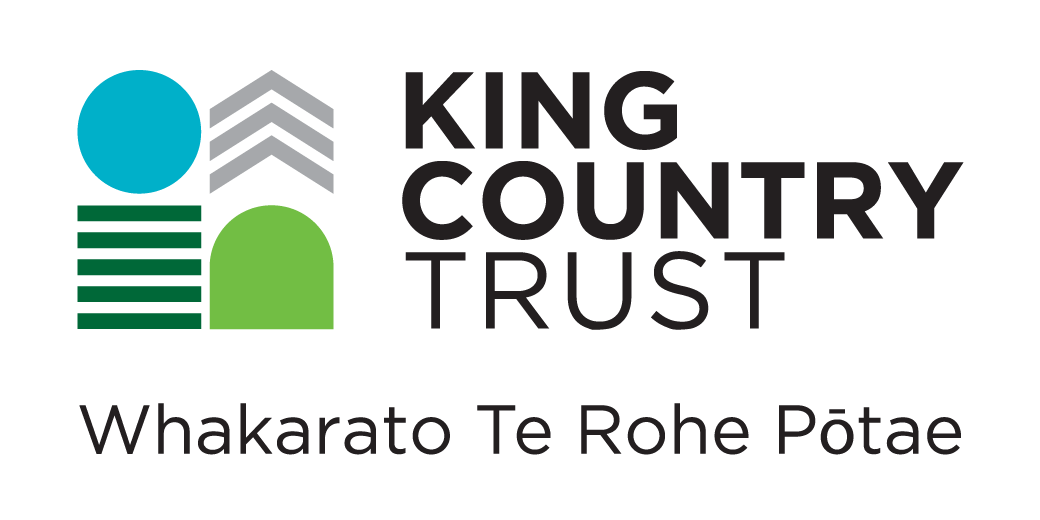Great Progress With Energy Efficiency and Education Project
The team behind the big energy efficiency and education project in the King Country believes the grassroots approach is behind the success to date.
King Country Trust[KCT] and one of New Zealand’s leading energy efficiency and education companies, Ecobulbformed a partnership supported by co-funding from the Ministry of Business, Innovation and Employment [MBIE] to roll out the programme in the King Country over the coming months.
KCT has a vision with its distribution policy to make a significant difference to the lives of their consumer beneficiaries and trustees believe this project will certainly achieve that and more.
The goal of this $300 000 project is to reduce electricity usage and power bills for more than 2,500 homes in the region. KCT partnered with Ecobulb about two years ago with a similar focus of reducing electricity costs to KCT consumer beneficiaries by distributing 35,000 LED free lightbulbs across the district. This project builds on that initiative.
KCT Chair, Adie Doyle has today released updated figures on progress with the project and says that more than 900 assessments have already been carried over the past two months meaning potential power bill savings to those homes of nearly half a million dollars in total. The team want to get another 600 assessments done before mid-September and they’re well on track to achieve that.
“This has been a huge undertaking and the key has been the partnerships formed in the community with people and organisations that already have deep reach into grassroots King Country. ”
KCT Project Lead, Sandra Greenslade says it has been humbling to see the response throughout the community because the project is making a difference to households right here and right now and that’s huge given it is winter time when power usage always increases.
“There is no doubt that this project is needed and has been a welcome relief for many families in and around Taumarunui, Turangi and Ohakune facing energy hardship particularly in the winter. It means that households potentially saving around $500 a year on their power bills.”
EcoBulb Chief Executive, Dr. Chris Mardon has been working in this space for more than 20 years both in New Zealand and offshore and says the model being used in King Country is successful because of the leadership of KCT, the partnerships formed with local community organisations and the assessors being local people who know their communities.
Households can either have the assessments done in their home or they can meet with an assessor and bring the necessary information with them. Dr Mardon says that has been key to getting to 900 assessments already because it’s up to the household to decide how they want to do this.
Ecobulb has developed a software platform based on years of experience, data and expertise that is used for the assessments. It takes households through how they use power and ways that they can make savings but it is left for the household to decide which changes might work for them.
“It is not an ‘all or nothing’ model because for some households there may be differing reasons why they use power the way they do. For example, for some people, they are fine to have showers and look to reduce the length of showers but for others having a nightly bath might be about mental well-being and they want to keep doing that. This is also why the assessors have lots of options and information for households so they feel in control of the outcome.”
‘The assessment tool can show households the potential savings for each of the primary uses of power so they can see for themselves what it would mean to for example, turn off that second fridge in the garage that is only chilling a couple of items.”
The assessors also provide the households with devices that will help reduce their power bills such as energy efficient LED Ecobulbs and low flow showerheads. The assessors will also clean out the filters of any heat pumps or take the householder through how to do that themselves.
The assessors also help the household look into the best contract to be on using PowerSwitch which is a software platform that was designed and developed by the Consumers Institute of New Zealand so it is independent and credible. The assessors will guide the household through how to switch retailers if that is what they want to do but always making sure that the final decision sits with the household.
Dr Mardon also believes that another reason for the success to date has been the partnerships with local people and local community groups. “The assessors live all ‘live locally’ and so this means they are making a real and tangible difference to the lives of their neighbours, families and communities. Often the assessors already have contact with some of the households and families and that means they can be sensitive to their needs and situations.”
KCT and Ecobulb were clear from the start that it was important the project was made available to everyone within the KCT boundaries and that people didn’t have to fill out forms to see if they qualified for an assessment.
If you or someone you knows wants an assessment to be done for their household them please email kcept@xtra.co.nz and the project team will get one of the assessors to make contact as soon as possible.
BACKGROUND ON THE PROJECT PARTNERS
ABOUT KING COUNTRY ELECTRIC POWER TRUST
King Country Electric Power Trust is an electricity trust, created under the Electricity Industry Reform Act.
Its beneficiaries are electricity consumers connected to the lines network within the area where the King Country Electric Power Board was licensed to supply.
Money comes into the Trust from interest, term deposits, general shares and dividends from a 25% shareholding in King Country Energy.
King Country Energy pays dividends to its shareholders, including the Trust. Those dividends support distributions for the benefit of the Trust’s beneficiaries.
ABOUT ECOBULB LIMITED
Ecobulb is a New Zealand owned company that is the leader in energy innovation and efficiency and the development of internationally recognised efficient and safe LED lights.
There are 24 millionEcobulbs in 3.3 million homes in New Zealand, Australia and the United States.
These have been distributed through nearly a hundred partnerships and projects involving electricity generators, retailers, lines companies, governments, supermarkets, Shell stations and third-party installers.
So far Ecobulbs are saving NZ$5.8 billion worth of electricity over their lifetimes, meaning Ecobulb is 61% of the way to its goal to ‘save enough electricity to power New Zealand for one year.’


